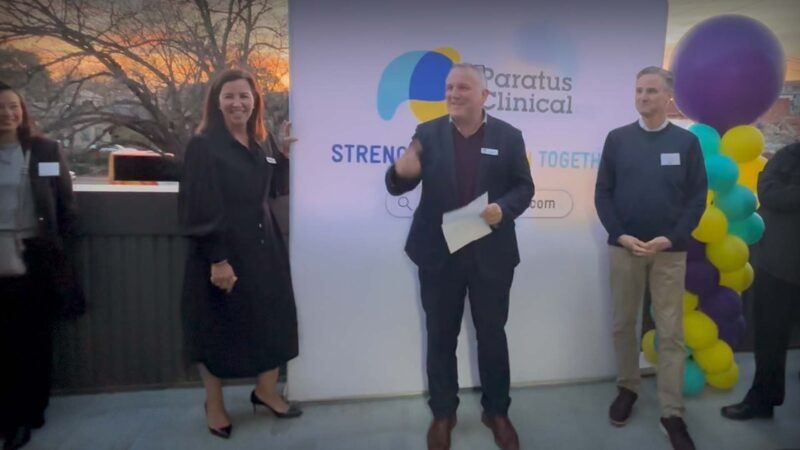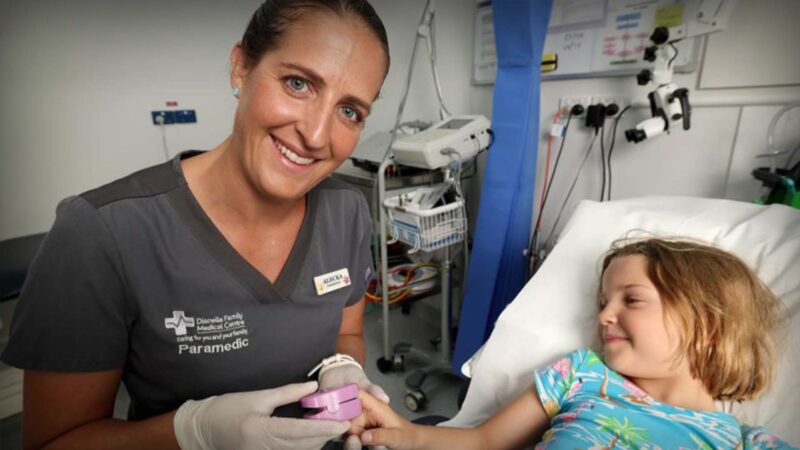Ensuring inclusion, diversity, equity and patient input in the development of novel drugs and medical devices has become well accepted in health care. However appropriate implementation of these elements has been a challenge for many. Only by implementing these conscious inputs can patient outcomes be improved and health disparities in marginalised groups be addressed.
Australian Health Journal spoke to Gillian Mason, Consumer and Community Involvement Lead at Hunter Medical Research Institute in Newcastle, NSW on this topic discussed at the recent ARCS Conference in Sydney.
Gillian is a proudly disabled and chronically ill health consumer and patient representative who is also a physiotherapist-researcher with more than 18 years’ experience of the health system from ‘both sides of the bedside’. She is passionate about improving access, inclusion and equity in healthcare for consumers and workforce. In 2021 she was one of 25 Australian women to be awarded the inaugural Brilliant Women in Digital Health Award for transforming the ways that people’s lived experience is valued and included in the design of human-centred, digitally enabled, accessible health systems.
The clinical trial sector needs to provide robust processes that ensure trust is built within these communities – and that processes are transparent and inclusive and importantly demonstrate a commitment to ethical and equitable practices.
“Inclusion and diversity are more than just words, they need to be backed up with meaningful actions and considerations of what they truly mean.”
“When we talk about diversity, we’re often centering whiteness.”, says Gillian.
According to Gillian, efforts to improve diversity, equity, and inclusion in clinical trials should address issues of racism, homophobia, and ableism to create a more inclusive environment
She states, ”Everyone who lives in Australia deserves access to high quality health care. They should be able to access these things without a huge burden or expense to them. It’s a human right to access health care.”
Having an inclusive approach to clinical trials is not just a nice thing to do, but it is essential for ensuring that treatments and medical services work for the entire population, rather than just a small group of people.
As Consumer and Community Involvement Lead at Hunter Medical Research Institute in NSW, Gillian manages the Research Volunteer Register and provides strategic advice, education, training and mentorship around consumer and community involvement in all stages of the research process to research teams.
Within the Australian Department of Health and Aged Care, Gillian is also the Deputy Chair of the Health Technology Assessment Consumer Consultative Committee, and a member of the Medical Service Advisory Committee.
You Might also like
-
World first in rural and remote nursing
In March 2023, the Australian Government released the National Rural and Remote Nursing Generalist Framework 2023–2027. The Framework is a world first and describes the unique context of practice and core capabilities for rural and remote Registered Nurses in Australia.
The Framework was developed by the Office of the National Rural Health Commissioner and Australian Health Journal spoke with National Rural Health Commissioner, Adjunct Professor Ruth Stewart, and Deputy National Rural Health Commissioner – Nursing and Midwifery, Adjunct Professor Shelley Nowlan, on the importance of rural and remote nursing and of the Framework itself.
-
A clinical research career working Sponsor-side, CRO-side to Site-side
In July 2025, Paratus Clinical, a Australian provider of dedicated clinical trial services, announced the appointment of Megan Morrison as its new Chief Executive Officer, at the same time as a significant milestone as the company celebrating over a decade of impact in the clinical research space. Paratus now operates a network of five purpose-built, research-only clinics along Australia’s eastern seaboard.
-
Diary of a Paramedic in a primary health care clinic
Alecka Miles is a lecturer at Edith Cowan University and works as a paramedic in a multidisciplinary team at Dianella Family Medical Centre in Metropolitan Perth, Western Australia.
Community paramedic roles have a history in Australia, dating back to 2007 in New South Wales and followed by similar initiatives in South Australia and New Zealand. Alecka’s position emerged after she sought to evaluate how paramedics could integrate into general practice, ultimately leading to a job offer post-COVID lockdown in 2020. Her skills, particularly in cannulation, proved valuable as healthcare shifted towards primary care.



